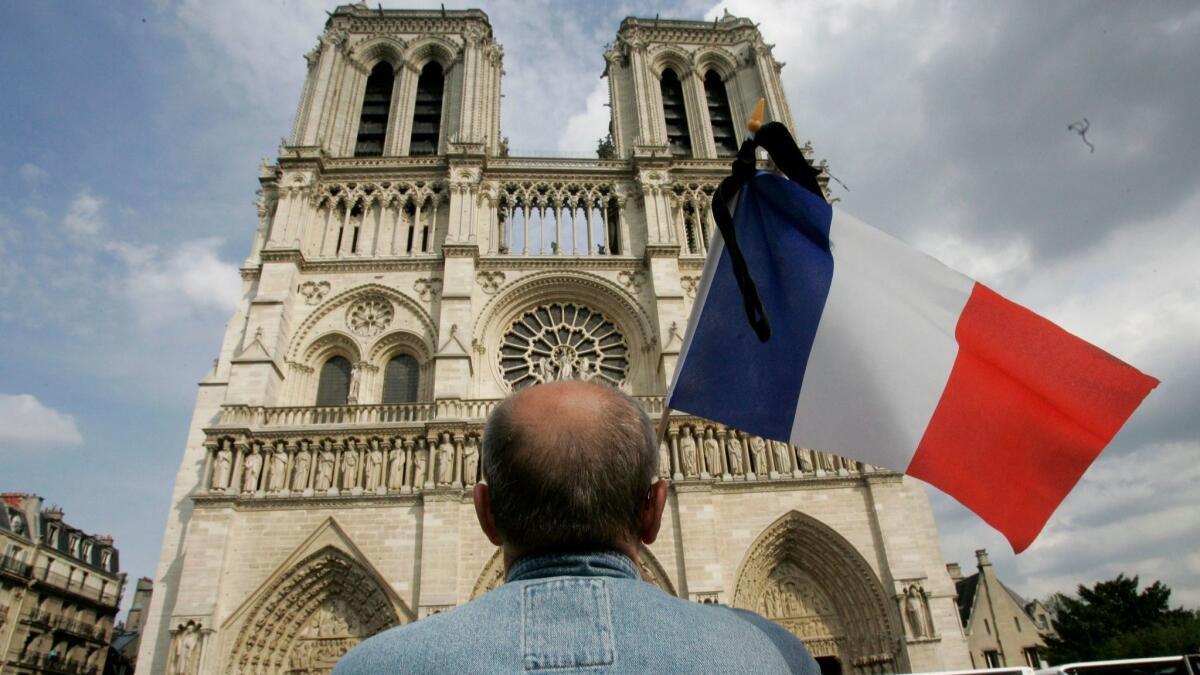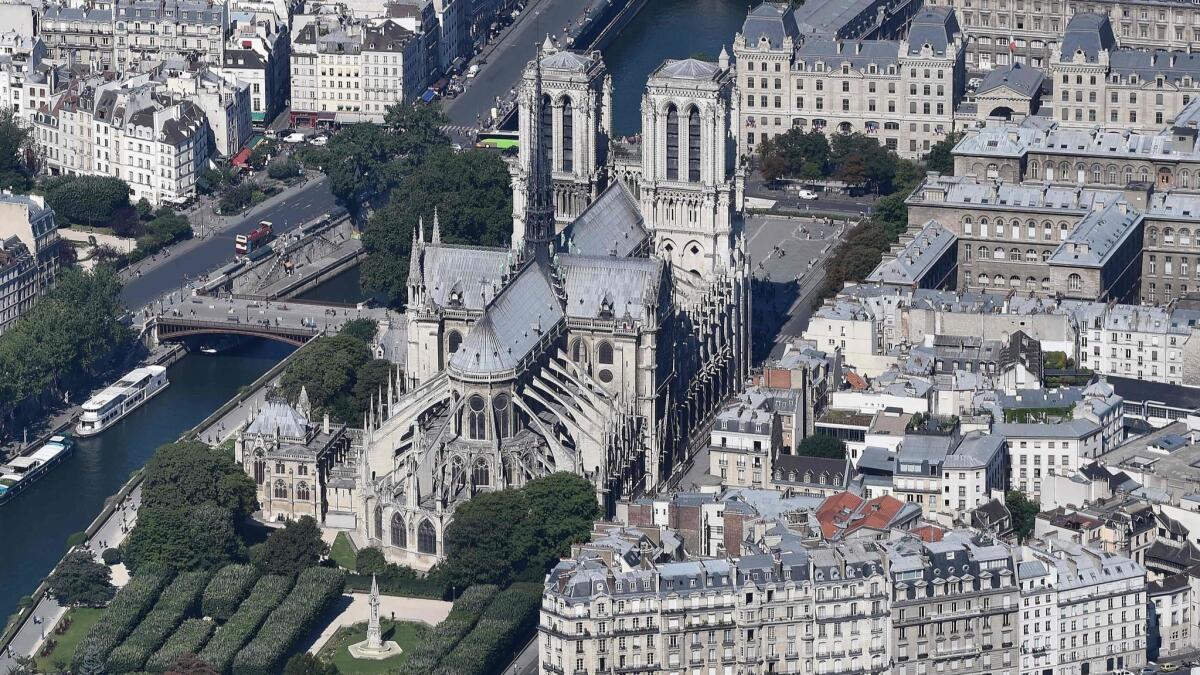Five things to know about Notre Dame Cathedral

- Share via
On Monday, news broke that Notre Dame Cathedral in Paris had caught on fire. The 12th century Roman Catholic cathedral, distinguished for its size and French Gothic architecture, is one of Paris’ most enduring and beloved landmarks, having survived more than 850 years of renovations and destruction to become a symbol of France itself.
Here are five things to know about the cathedral.
1. Its origins
The cathedral was built during the reign of King Louis VII, on the eastern end of the Île de la Cité, an island in the Seine River near the historical center of Paris. In about 1160, Bishop Maurice de Sully proposed building a cathedral dedicated to the Virgin Mary (“Notre Dame” is French for “Our Lady”). It was the center of an urban project, and a church was demolished to make space.
By 1163, it is believed that the first stone was set in the presence of Pope Alexander III, according to the cathedral’s website. In the 1180s, the high altar was consecrated. Over the next 100 years, additions were made, including the western facade, chapels and porches.
2. The architecture
The cathedral is an example of French Gothic architecture, which was an emerging style in the 12th century. Notable pieces of its design were built over time, such as the construction of the imposing western facade, which began in 1200 under the cathedral’s third architect and continued for at least 20 years.
The facade’s north and south towers were completed in the mid-1200s. The addition of flying buttresses — slanted structures that form arches to provide support — came as the cathedral was built higher and stress fractures occurred. The flying buttress was invented at the cathedral because it was an “exceptionally tall structure,” says Carolyn M. Malone, a USC professor of art history and history.
The center iconic spire, which collapsed on Monday, was dismantled in the 13th century and later reconstructed in the 19th century.
The cathedral is also home to rose windows made of circular stained glass, some of which were re-created in the 19th century.
The interior of the cathedral is about 130 feet by 420 feet, the roof about 140 feet high.

3. Its revival
Over the years, the cathedral sustained damage, mostly during the French Revolution, during which 28 statues of kings were destroyed. But the 19th century also brought changes to the cathedral, including a period of reconstruction — ordered by King Louis Philippe — and Victor Hugo publishing his novel, “Notre Dame de Paris,” also known as “The Hunchback of Notre Dame,” which became a huge success.
During this period, the spire was reconstructed, murals were painted in the side chapels, sculptures were restored and the great organ was reconstructed.
4. Significant moments in history at Notre Dame Cathedral
The cathedral has been the setting for numerous historic moments. In 1431, King Henry VI of England was crowned king of France. Notre Dame is where King James V of Scotland married Madeleine of France in 1537. It was also where, in 1804, Napoleon Bonaparte was crowned emperor.
It is also where Joan of Arc, who helped France battle England, was beatified. Hugo’s book was set at the cathedral (and later became a popular Disney movie).
Most recently, it was the site where tourists were trapped when a hammer-wielding assailant attacked police in 2017. It was the second attack in four days at a European landmark.
5. The cathedral today
An estimated 13 million people visit the cathedral each year, according to its website.
Until Monday, the towering cathedral still regularly celebrated Sunday Mass and was home to historical artifacts, including a restored centuries-old organ. Some of its treasures were reported saved during the fire.
The cathedral was in dire need of renovations in 2017, according to the New York Times. The Friends of the Notre Dame foundation estimated that it needed $40 million for urgent fixes and hoped to raise more than $110 million over the next decade for complete renovations, the New York Times reported.
More to Read
Sign up for Essential California
The most important California stories and recommendations in your inbox every morning.
You may occasionally receive promotional content from the Los Angeles Times.











